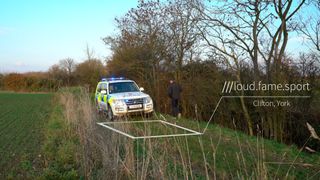Capita partners with What3Words to improve 999 emergency locating
999 services will have a system that pinpoints caller locations down to a three-metre square

Capita has integrated the What3Words app into its 'Vision' control systems to help emergency services locate 999 callers in difficult to pinpoint areas.
What3Words is a startup that uses geographical data to map the world into three-metre squares. Each square is given a three-word address and can be accessed via the company's app.
For people who need to contact 999 but have nothing to identify their location, the app gives them a code to send to the emergency services.
This will now be integrated with Capita's 999eye video streaming service, enabling emergency teams to access both an accurate location and live video link of incidents.
"Having what3words integrated into Vision, our main mobilising system, will ultimately make this app a great asset to our Critical Control Centre," said Kathryn Billing, assistant fire chief, Cornwall Fire Service.
"It will make it easier for us to coordinate our resources to the precise location where help is needed. With the app being integrated with our electronic systems, it will also make it easier to share key location information between our blue light colleagues, teams and partner agencies."
Chair, Spoon, and Toffee
What3Words came to light in 2018 after Police in Sommerset used it to locate a woman who's car had come off a rural road. She was given a link to the app, which then presented her with the three-word location her vehicle had landed in.
Get the ITPro. daily newsletter
Receive our latest news, industry updates, featured resources and more. Sign up today to receive our FREE report on AI cyber crime & security - newly updated for 2024.
The whole idea hinges on the fact that there are enough combinations of three words that you can uniquely fill every three-meter square in the world, according to Chris Sheldrick, the CEO and founder of What3Words.
"We really just wanted to focus on simplicity because then its something people can just use," Sheldrick told IT Pro. "And if it's as simple as saying I live at 'Chair', 'Spoon', and 'Toffee' and there is only one of them in the world, that just reduces so much frustration and difficulty. It's enormously powerful, it helps anybody get anywhere, it helps logistics deliver things to the right place and it's global and multilingual.
"It will still tell you the three words where you are, even if you're offline, anywhere in the world. Obviously, if you're in an emergency, you still need to find a way of contacting the emergency services. In some cases, you don't have any data, but you have enough, let us say 2G signal on your phone to be able to call 999, in those times it can be incredibly useful. And that is the case in a lot of rural areas."
Such initiatives are yet another example of how digital technology is increasingly being integrated into the emergency services and the wider public sector with aims to specifically improve certain services rather than simply move systems into the cloud.
Bobby Hellard is ITPro's Reviews Editor and has worked on CloudPro and ChannelPro since 2018. In his time at ITPro, Bobby has covered stories for all the major technology companies, such as Apple, Microsoft, Amazon and Facebook, and regularly attends industry-leading events such as AWS Re:Invent and Google Cloud Next.
Bobby mainly covers hardware reviews, but you will also recognize him as the face of many of our video reviews of laptops and smartphones.





